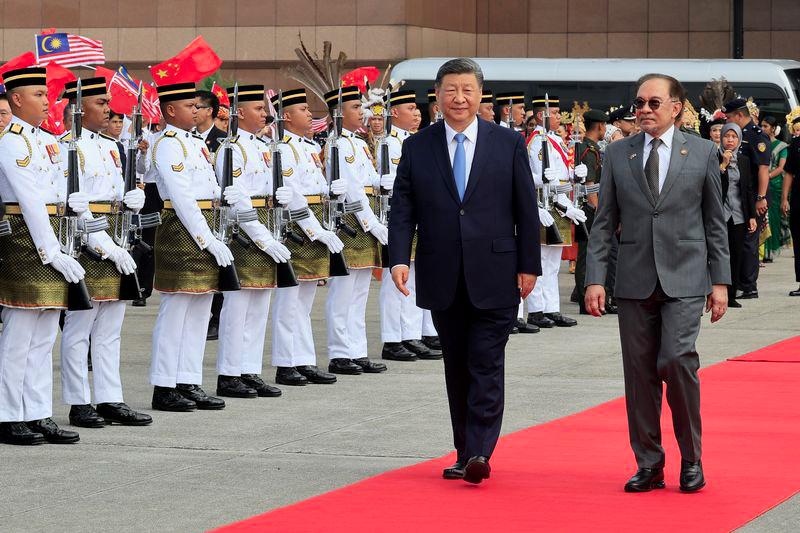PETALING JAYA: Malaysia and China stand firm in their belief that peace and stability in the Asia-Pacific region are hard-won and must be fiercely protected.
Both nations underscored the urgency of safeguarding regional peace and security and urged against any action that might threaten stability, reiterating a shared commitment to an open, inclusive regional framework in a joint statement yesterday.
“In line with the Treaty on the Southeast Asia Nuclear Weapon-Free Zone, the two countries agreed to support efforts to preserve Southeast Asia as a region free from nuclear weapons and other weapons of mass destruction, while contributing to global efforts in disarmament, non-proliferation and peaceful uses of nuclear energy.”
To deepen strategic engagement, both sides will establish a Joint Foreign and Defence Dialogue Mechanism, expanding top-level communication and advancing political-security collaboration.
They also pledged to strengthen existing cooperation in national security, defence and law enforcement.
“This includes more joint exercises, training, official exchanges and capacity-building programmes.”
The two nations stood united against terrorism and transnational crime and stressed the need to maintain calm and stability in the South China Sea.
Disputes should be resolved peacefully through dialogue and in line with international law, including the 1982 UN Convention on the Law of the Sea.
Malaysia and China urged all parties to exercise restraint, warning against interference by parties not directly concerned.
They also called for all relevant stakeholders to uphold and effectively implement the Gaza ceasefire agreement, with the ultimate goal of a lasting truce.
Both countries reaffirmed that Gaza is Palestinian land, an inseparable part of Palestine, and that “Palestinians governing Palestine” must be the guiding principle in any post-conflict arrangement.
Both sides opposed forced displacement and backed the creation of an independent Palestinian state under a two-state solution, with full UN membership for Palestine.
On economic and technological ties, Malaysia and China will explore joint ventures in rail systems, aerospace and nuclear energy.
Both countries will support Malaysian airlines in adopting and operating Chinese commercial aircraft, while working together to advance industrial upgrades and energy transitions in both nations.
Connectivity is another shared priority. Malaysia and China will drive forward infrastructure cooperation, fast-track flagship projects like the East Coast Rail Link and strengthen rail-sea transport to boost regional links. Their ports are encouraged to collaborate in building a thriving blue economy.
Both sides will seek out more iconic, strategic projects grounded in trust, mutual benefit and win-win outcomes.
Aviation cooperation will be scaled up, with greater technical exchange and logistics collaboration between KL International Airport and Zhengzhou Xinzheng International Airport – fuelling the shared ambition of an integrated Asean-China Air Silk Road.
Both countries will also coordinate more closely within the Asia-Pacific Economic Cooperation (Apec), driving the Putrajaya Vision 2040 forward and laying the foundation for an Asia-Pacific Community.
Malaysia voiced strong support for China’s hosting of the Apec Economic Leaders’ Meeting in 2026.









